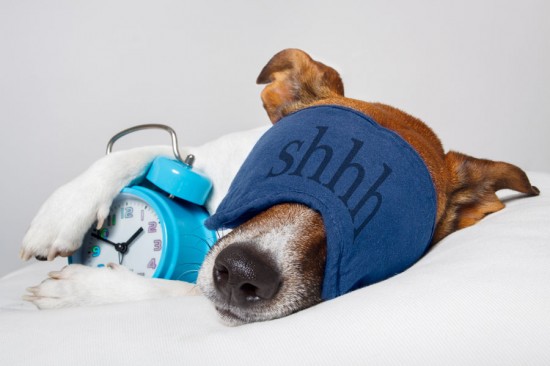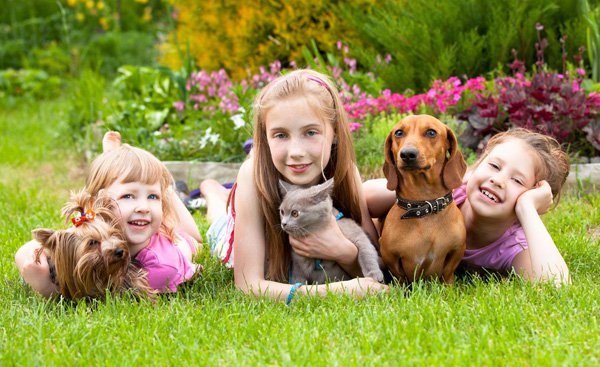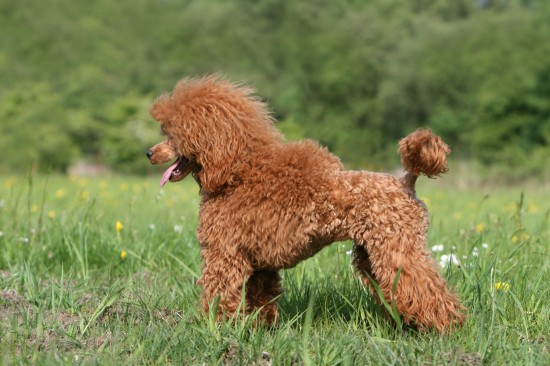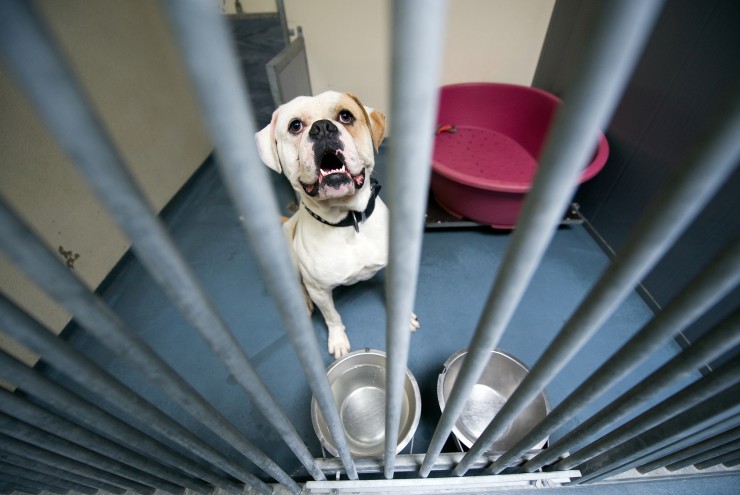

Just like people, dogs have different habits, traits and quirks. This shows in many ways, including their sleeping habits.
A relaxed, happy, chilled-out dog will spend quite a lot of time sleeping, during the day as well as at night. While a dog can be active all day when required eg when working or for sporting purposes, he doesn't need to be on the go all the time and should be satisfied to just settle down for a nap if there's nothing else to do. In the wild, canines spend their days sleeping and playing, going off on a hunt for food when necessary. They certainly don't go for a walk as we know it, there's simply no need. If you have a dog that doesn't settle easily, is always charging around, maybe you need to consider why?
You probably already know that your dog will sleep anywhere that's comfy! Going back to the wild situation again, the pack leaders choose the best place to sleep - often up high, where they can see what's going on. If your dog chooses your bed, sofa or chair, it may be more than just a comfy spot, it could be a superior place where they can keep an eye on everything and where they can assert their status. If this is a problem, see the "Attention Seeking Dogs" article for advice. Sometimes dogs will pick the warmest place - in the sun, or near another source of heat - or they may want the coolest place on a hot day. Some dogs are happy to lie on a hard surface, others will do no such thing, and insist on somewhere soft - but this can be forgiven if they don't have much padding of their own.
It's important you provide your dog with somewhere he can call his own to sleep. Whether it's a blanket, dog bed, basket, crate or cardboard box doesn't matter. It's down to personal choice but needn't be expensive. As long as it's somewhere he likes to go and he can get to it when he wants - perhaps to escape other pets or even the children! Or he might just choose a favourite corner or hidey-hole, and he'll probably move from one place to another from time to time. And the space or bed needs to be big enough for him to stretch out comfortably.
Dogs sometimes like to dig at and rearrange their bedding, getting it just right before settling down, bringing out their nest-building instincts. However, if your dog regularly destroys his bedding when you're not around, it may be a case of separation anxiety.
Once again, dogs will vary. Some sleep curled up, some stretched out, some on their backs with their legs in the air! And sometimes they doze off while sitting up. This is all normal. They sometimes choose positions which look quite uncomfortable but if they're happy enough to go to sleep, it must be OK. When there is more than one dog (or other animal), they might choose to snuggle up together, but not all dogs will do that. Like us, dogs have personal space, so some of them like to be left alone to sleep and might actually be quite grumpy about having that personal space invaded. It is also quite normal for a dog to be grumpy when woken - just like us! And because of their superior hearing and sense of smell, dogs may appear to suddenly become awake and alert for no reason, but it's probably because they've heard or smelled something you're not aware of.
Yes, dogs do dream and it's quite common to see and hear evidence of it - twitching, eye rolling, growling, yelping and barking. The first time you notice this, it can be quite alarming but it is normal. Lots of dogs snore too, and not just the flat-nosed breeds.
Newborn pups spend a huge amount of time asleep, only staying awake for a few minutes at a time. As they get older, they gradually spend longer and longer periods of time awake, but still get suddenly tired and need a nap, falling asleep almost instantly. The first few nights in a new home can be scary for a puppy. Some will sleep through the night straight away but some will need a little help. If you want the pup to eventually sleep alone, he may need a gradual introduction. You could start with him in his own bed in your room and gradually, over several nights, moving his bed further and further away from yours. If you fall into the trap of letting him sleep in your bed you risk it becoming a permanent arrangement so if you don't want that to happen, start as you mean to go on. Be strong, be prepared for some disturbed nights and stick to your guns.
At the other end of the scale, older dogs start to become less active and spend more time asleep. They may need some extra comfort at this stage - for example a thicker, softer bed to help those aching bones and joints or a raised bed that's easier to get off & on. They may need their bed moved to a separate room or area where they can escape younger, more boisterous dogs - or children! When the hearing starts to deteriorate, you might notice your dog sleeps through things and may even be startled when woken.
Whether by a new pup or an older dog, being woken in the night can be very frustrating and disruptive. If it only happens occasionally, it's probably for a reason such as a noise outside or needing to toilet so it's probably worth investigating. However, the key here is not to make too big a thing of it, otherwise your dog will have learnt a way to get your attention and it may start to become a regular event. If you think your dog needs to go out to toilet, simply open the door, without speaking to or making eye contact with your dog. If he really needs to go, he'll go - and you may want to consider why this has happened and how to prevent it happening again, a change of food or feeding time perhaps, or ensuring he goes before bedtime. When your dog returns, once again simply close the door and go back to bed. Any attention will make your dog think the exercise is worth repeating. If he's tricked you into letting him out and he doesn't then want to come back in again, close the door as if you're going to leave him there, wait a minute or two and open the door again. Only go and get him as a last resort but do whatever you can to ensure your dog is getting no reward for his behaviour. And always remain calm.
If you think your dog is just trying to get your attention and doesn't need to go out, try this tactic. Go to where he is, pay him no attention (so no eye contact or speaking) spend a moment just doing something else, then leave again. For example, if your dog is in the kitchen - go in, get a glass of water (whether you want it or not) and leave again. This reassures your dog that all is well, you're safe and everything's normal but shows him that there's no attention to be had at the moment.
So although there are many variations to dogs' sleeping habits, do consult your vet if you're concerned that your dog is doing something abnormal in his sleep or if there is a sudden change, such a sleeping a lot more than usual with no specific explanation for it.
 The Core Personality Traits Of Herding And Shepherding Dogs
The Core Personal
The Core Personality Traits Of Herding And Shepherding Dogs
The Core Personal
 Effective Vermin Control in Milton Keynes is only by an Expert
Effective Vermin Control in Milton Keynes is only by an Ex
Effective Vermin Control in Milton Keynes is only by an Expert
Effective Vermin Control in Milton Keynes is only by an Ex
 Kittens And Retained Baby Teeth
Kittens And Retai
Kittens And Retained Baby Teeth
Kittens And Retai
 Miniature Poodle Hereditary Health And Health Testing
Miniature Poodle
Miniature Poodle Hereditary Health And Health Testing
Miniature Poodle
 Seven Top Tips For Kennel Boarding A Dog That Suffers From Separation Anxiety
Seven Top Tips Fo
Seven Top Tips For Kennel Boarding A Dog That Suffers From Separation Anxiety
Seven Top Tips Fo
Copyright © 2005-2016 Pet Information All Rights Reserved
Contact us: www162date@outlook.com